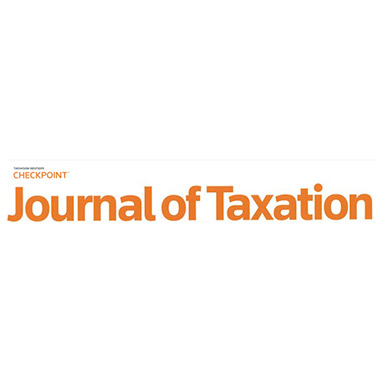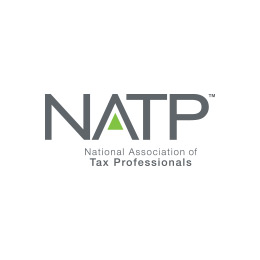Willfully failing to file a tax return is a serious offense that carries significant criminal consequences. The penalties for this offense include fines, imprisonment, and damage to one’s reputation.
Willful failure to file a tax return refers to the intentional act of not submitting a required tax return to the appropriate tax authorities within the specified timeframe. The term “willful” implies a deliberate disregard of one’s legal obligation to file a tax return. However, an honest mistake can sometimes appear to be willful. In many cases, it can be shown that there is reasonable cause for the violation or the taxpayer’s actions do not meet the legal definition of willful.
Contact McCormick Tax Law at (215) 630-0861 for a free case review with our lawyers for willful failure to file a tax return.
Understanding the IRS’s Rules for Willful Failure to File a Tax Return
Failing to pay income taxes intentionally is considered a criminal offense by law. If the Internal Revenue Service (IRS) has reason to believe that you or your company have purposely failed to pay taxes that you owe, failed to report all your income while filing tax returns, failed to file your tax returns, or resorted to false or fraudulent income reporting, they can initiate criminal proceedings against you. The consequences are often serious, including significant monetary fines and imprisonment.
However, the IRS needs to present substantial evidence that proves beyond doubt that you deliberately failed to pay your income taxes. That is why we recommend working with our skilled attorneys for willful failure to file a tax return, who can help show that your mistake was not a deliberate one. The IRS must demonstrate that your errors were not accidental but rather an intentional strategy on your part to deceive the government by avoiding tax payments.
How Willful Failure is Determined
To prove a violation under 26 U.S.C. § 7203 for not filing a tax return, the government needs to demonstrate that the individual was legally obligated to file a return for the given taxable period and that they did not file it on time as required by law. The third element the government must prove is willfulness. However, “willfulness” can take many forms for the purposes of tax crimes.
It is essential to note that the government does not have to establish that an individual made an intentional mistake to prove that a violation was willful. A violation can be considered willful if it is established that the individual demonstrated reckless disregard for their filing obligations.
In other words, an individual does not have to have intentional knowledge of the violation for a willful penalty to be imposed. Even individuals who are considered to have intentionally ignored their filing obligations can still be charged. The IRS refers to this as “willful blindness.”
Merely claiming that you were unaware of your tax return obligations does not provide immunity from prosecution if you intentionally avoided information that would prove your guilt. It is considered willful blindness when a taxpayer holds a subjective belief that significant information exists but intentionally avoids gaining knowledge about it.
Furthermore, intentionally avoiding information that would make one aware of their obligations is also a form of willful blindness. For example, if someone declines advice from their tax professional on when to file their tax return and for how much, it could be used as evidence of willful failure to perform their duties.
The Penalties for Willful Failure to File a Tax Return
According to 26 U.S.C. § 7203, any person who is required to file a tax return, keep financial records, or provide tax information and knowingly and deliberately fails to submit their tax return will be deemed guilty of a misdemeanor offense. This means that failing to file taxes is a serious offense that can result in legal action being taken against such individuals. It is, therefore, imperative that you fulfill your tax obligations in a timely and accurate manner to avoid costly legal consequences.
In addition to other legal penalties, the offender will typically have to pay a fine of up to $25,000 or up to $100,000 for corporations and can even be imprisoned for a year. On top of that, the offender will also be responsible for covering the expenses associated with legal proceedings.
Programs the IRS Offers to Regain Compliance if You Fail to File a Tax Return
If you have not filed your tax return or you believe that you made an error while filing, you might be able to take advantage of various programs provided by the IRS to regain compliance. However, whether or not these programs are available to you depends on whether the violation was willful or not. If the violation was proven to be willful, only one option is available. But, if it can be argued that the violation was an honest mistake, other programs might be available.
The Voluntary Disclosure Program
The Voluntary Disclosure Program (VDP) is designed to assist taxpayers who might have willfully or unintentionally failed to comply with tax laws. The main goal of this program is to encourage these taxpayers to come forward and disclose their circumstances to the IRS in a comprehensive manner without the need for a costly, time-consuming investigation.
By doing so, the IRS can assess the situation and determine appropriate penalties, which will usually be reduced for those who voluntarily disclose their non-compliance. In some cases, the VDP can also help prevent criminal charges from being filed. For taxpayers who are unable to certify non-willfulness under penalty of perjury, this disclosure option can be a viable choice to avoid further complications and penalties.
The Streamlined Foreign Offshore Program
The Streamlined Foreign Offshore Program (SFOP) is a tax compliance initiative that provides an opportunity for certain taxpayers to come forward voluntarily and correct their past non-compliance. The program allows eligible taxpayers to file amended or original tax returns for up to three years.
However, to qualify for SFOP, taxpayers must meet certain conditions. They must certify under penalty of perjury that their prior non-compliance was because of non-willful conduct. They must also satisfy the program’s eligibility criteria, such as being a U.S. citizen or resident who has not filed tax returns for the previous three years.
It is important to note that applying for the Voluntary Disclosure Program and SFOP are two separate processes. If an individual is turned down for the Streamlined Procedures, they will not be able to reapply for the Voluntary Disclosure Program. Therefore, it is crucial to carefully evaluate the eligibility requirements of each program and apply for both.
Our Attorneys for Willful Failure to File a Tax Return Can Help You Get Your Taxes in Order
For a free evaluation of your filing responsibilities, speak with our attorneys for willful failure to file a tax return at McCormick Tax Law at (215) 630-0861.










